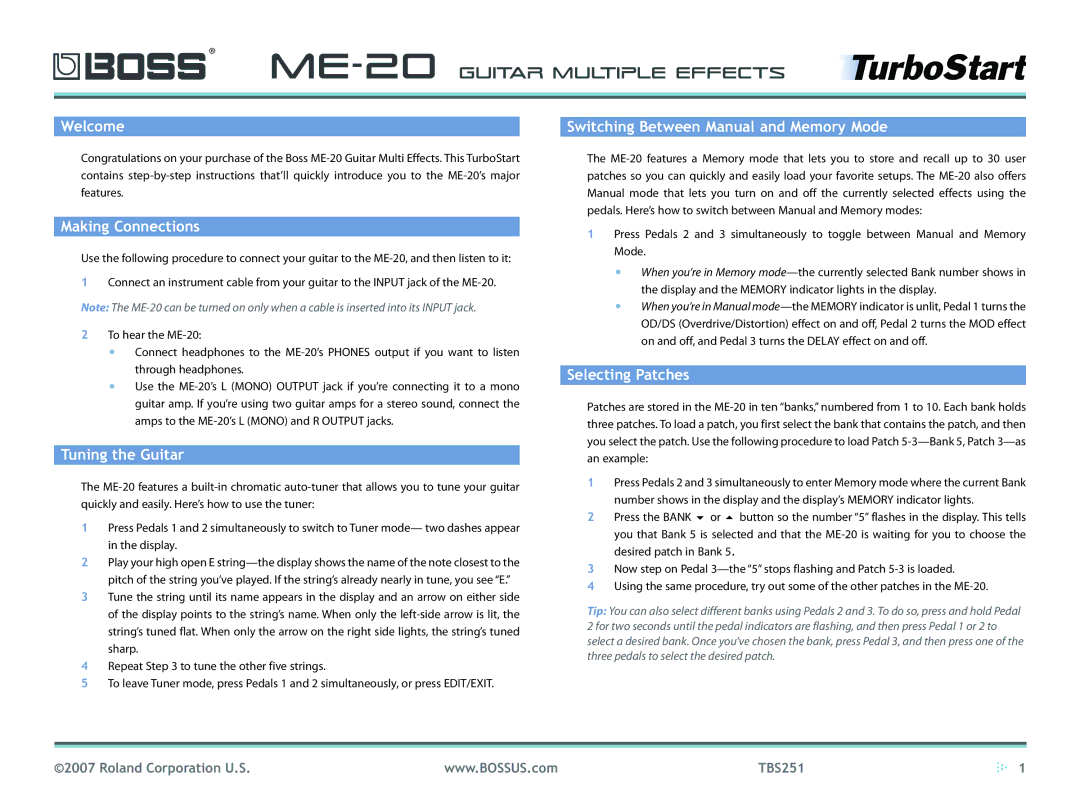ME-20 specifications
The Roland ME-20 is a compact, powerful effects processor designed specifically for guitarists. It combines a wide array of effects with user-friendly features, making it an excellent choice for both beginners and experienced players. With its emphasis on versatility and creativity, the ME-20 enables musicians to explore various tones and textures, allowing them to enhance their performances without the need for a complex pedalboard setup.One of the standout features of the ME-20 is its selection of high-quality effects. The device includes a range of distortions, overdrives, and fuzz pedals, providing guitarists with the ability to shape their sound precisely. Additionally, the ME-20 boasts modulation effects such as chorus and flanger, alongside time-based effects like delay and reverb. This comprehensive suite of effects allows players to experiment with different sonic landscapes and achieve professional-quality sounds.
The ME-20 utilizes Roland’s advanced COSM (Composite Object Sound Modeling) technology, which allows for the emulation of various classic amplifiers and pedal effects. This technology captures the nuances of different gear, ensuring that players can access a wide variety of sounds that mimic real-world equipment. The result is a device that not only offers convenience but also authenticity in its tone generation.
In terms of user experience, the ME-20 features a straightforward interface that makes it easy to navigate through its various functions. The layout includes dedicated knobs for adjusting parameters, allowing musicians to tweak their sounds in real time. The device also supports the use of expression pedals, providing even greater control over effects parameters during performances.
Another notable characteristic of the ME-20 is its built-in tuner and rhythm guide. The tuner ensures that guitarists can easily stay in tune, while the rhythm guide offers a variety of rhythm patterns to play along with, making practice sessions more enjoyable and productive.
The ME-20 is also designed for portability, making it an ideal choice for musicians on the go. Its durable construction ensures that it can withstand the rigors of travel, while its lightweight design makes it easy to carry around. Thanks to its versatility, impressive sound quality, and user-friendly operation, the Roland ME-20 has established itself as a reliable tool for guitarists looking to enhance their musical expression.

